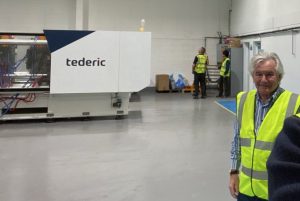Dodson backs local TV

MARK Dodson, the man who oversaw the demise of Manchester TV station Channel M, believes there is still a future for local TV.
Speaking at the Nations & Regions Media Conference at the Lowry Centre in Salford yesterday Mr Dodson, former chief executive of the channel’s owner GMG Regional Media, said local TV would probably flourish when internet TV becomes a reality in the next few years.
Loss-making Channel M pioneered the convergence of local TV, newspapers and online content. But it was mothballed last March with the loss of 30 jobs after GMG failed to find a buyer when it sold MEN Media to Trinity Mirror. The station’s new controller John Furlong has said it will be relaunched in May.
Mr Dodson said: “Local TV isn’t commercially viable at the moment but it can be with certain things in place… It’s ultimately an IPTV [internet enabled TV] product but there’s a digital bridge to get over.
“If you look at the IPTV model that’s where it will migrate to. But there’s a four to six-year bridge we’ve got to get across and that’s what Shott [Government adviser Nicholas Shott] will facilitate.”
Mr Shott, UK head of investment banking at Lazard, has prepared a report for culture secretary Jeremy Hunt on how to create commercially viable local TV.
Addressing broadcasting executives at the Oxford Media Convention today Mr Hunt is to invite companies to run local TV stations in 10 to 12 cities. Bidders will have until March 1 to register an interest and licences will be handed out by the end of 2012.
The Government’s plans include initial funding of £25m followed by £5m a year, spread across all the stations, taken from the BBC licence fee. Mr Dodson said Channel M alone cost £5m a year to run.
The plans replace Labour’s Independently Funded News Consortia (IFNC) idea which was a response to the reduction of regional news programming by ITV. Newspaper groups, including Trinity Mirror, were among the IFNC bidders and won some of the pilots.
Mr Dodson added: “Regional newspaper groups are in a beautiful position to take this forward but they have huge problems of their own, structurally and financially – some of the biggest problems of a generation and they’ve taken their eye of the ball. They can’t keep putting effort in because they’ve got enough problems.
“As things move forward it will be an opportunity for regional newspapers to bring fresh equity in and for their businesses to change the way they look and feel to their own communities.”








